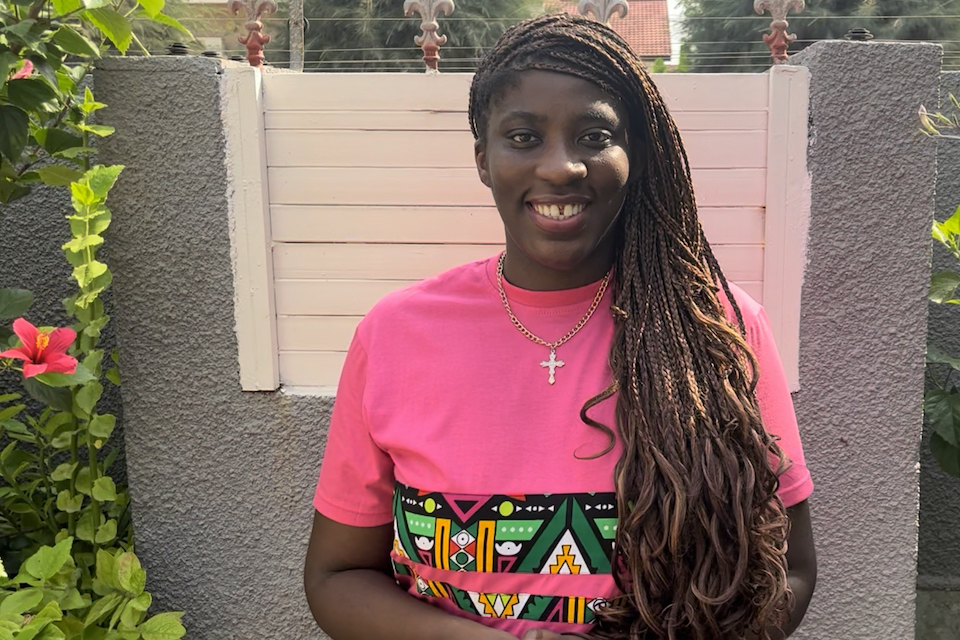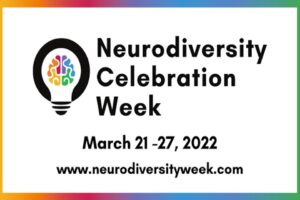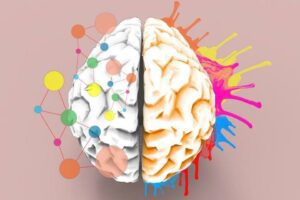
Abigail Agyei, a civil servant in the Department of Health and Social Care, shares her experiences with ADHD and dyspraxia, and explains how we can all support colleagues with neuro-differences.
Last week (21 to 27 March) was Neurodiversity Celebration Week: a worldwide initiative that challenges the stereotypes and misconceptions about neurological differences and creates a balanced view which focuses equally on people’s talents and strengths.
The term ‘neurodiversity’ was coined in the late 1990s to describe brain differences in areas such as attention, learning and sociability - which are normal, rather than weaknesses. Neurodiversity commonly refers to people with autism spectrum disorder, ADHD, dyslexia, dyspraxia and other learning disabilities. Current estimates suggest that around one in seven of us in the UK is neurodivergent.
Neuro-differences can often be stigmatised, invisible, or masked. When we look at how neurodiversity interacts with social, cultural and political identities, then we find there can be even more significant obstacles to success.
My journey
I was formally diagnosed with dyspraxia at university and only received my official diagnosis for ADHD in the last six months. I’ve always been hardworking, creative and passionate but spent a lifetime feeling chronically overwhelmed, struggling with structure, feeling my mind was on constant overload, and worrying that I wasn’t reaching my full potential. After a year-long NHS process, I eventually got my ADHD diagnosis.
Anger and shame
On one hand, this left me feeling liberated – but feelings also surfaced of anger, shame and resentment over how long it had taken for this to be recognised.
Figures show that men are three times more likely than women to be diagnosed with ADHD; many Black women only receive their diagnosis much later in life - if they do get a diagnosis. Similar figures between men and women are shown for other neuro-differences too.
The current system is largely reliant on women with ADHD understanding their own traits and seeking a diagnosis. The problem is that the existing diagnostic criteria – the traits you need to identify – is still based on research that is biased towards boys and men. Yet girls and women don’t always conform to that clinical picture and are often socialised to assimilate, and are likely to develop coping mechanisms which help mask the disorder.
Societal pressures
When we look further at intersectionality, for Black women, inaccurate cultural beliefs and lack of cultural sensitivity from some practitioners in understanding their nuanced experiences, along with unrealistic societal pressures often placed on Black women to appear to “have it together”, can also add to a lack of diagnosis and awareness with these neuro-differences. This is why it is important we have more conversations to create neuro-inclusive organisations.

Supporting neurodiverse colleagues
One of my biggest weaknesses has often been asking for help. I struggle in silence to do things that many others may find simple. Even after my diagnosis, I’m still having to reframe my thinking and remind myself of the many strengths my neuro-differences add to my work – such as my strong sense of fairness, empathy and emotional intelligence.
How to help
I am grateful I have a supportive manager. In A Modern Civil Service, we should recognise that many neurodiverse civil servants interact and interpret the world in unique ways. Whilst it can sometimes bring challenges, it can also lead to creative problem solving and new ideas that can benefit everyone - and the citizens we all serve. If you are working with a colleague who needs additional support, here are some suggestions of how you can help them:
◼︎If a colleague has asked for help, let them know it’s good they’re asking for help and make them feel as comfortable as possible
◼︎Highlight and discuss with them their areas of strength
◼︎Discuss where they feel they need further support, development or any workplace adjustments, and how you will support them with this
◼︎Listen empathetically and validate their experiences without judgement
Research
Do your own research on anything a colleague discloses – let them know you’re learning and you can learn together if they’re still early in their diagnosis or understanding. Remember everybody’s experience is different. Check out the Civil Service Dyslexia and Dyspraxia Network toolkit for staff and their line managers.
Be discreet
As a manager, it’s important to respect confidentiality. Don’t disclose anything with anyone else unless it has been agreed with the colleague.
Remind your colleague that any reasonable adjustment they get in the workplace is not special treatment – it’s there to support them to work to the best of their ability.
Unique strengths
Let’s change the narrative! If you’re neurodiverse, take some time to recognise the unique strengths you bring to the Civil Service, and embrace and value your differences.
Find out more
For more information, contact the Civil Service Neurodiversity Network, Civil Service Dyslexia and Dyspraxia Network and Civil Service Disability Network.


9 comments
Comment by Owen posted on
Thank you for such a brilliantly written, informative engaging and balanced post. I always feel when I am writing or talking about my autism I am veering too far into detail and boredom, or skimming over what needs to be said.
I hope your article makes more people think about themselves, or them around them, helps people to become more aware of their own struggles that haven't been recognised / validated, or to recognise, validate and support those who have previously not had that.
I can appreciate the feelings after diagnosis - I was self diagnosed and thought the official diagnosis would just be a tickbox thing. At 45, why would it change anything? Instead that validation actually started a good year or so of emotional rollercoaster, as I processed and came to terms with so many missed opportunities, points where something should / could have been seen or acted on.
I recognise that draining struggle with things that seem so effortless to others, not realising that a different wiring means the task itself isn't the same, but no-one has ever told you that you might be seeing / experiencing / understanding it differently to others.
It is great to see you empowering and educating everyone. When I was first diagnosed it was something private to come to terms with. Now I post on here, on internet pages with 100,000+ members, etc. If I can be a role model for someone else, so they can struggle less, aspire more and be a better them, that is meaningful. I hope you too find the same benefits.
Comment by Edil Abdi posted on
Thanks Abi! With your support I have been able to finally seek the support needed for my ADHD diagnosis. Like you I have felt relieved that there is an explanation around things that other found easy and I had to work harder at and sometimes still fail. But also what I have missed out on being hard on myself when in fact my in just different. There’s no shame in it, but understanding is the first step!
I hope this post helps other as you have helped me
Comment by Brimma Jones posted on
This is very insightful thank you for being very open Abigail.
Comment by Gavin Thomas posted on
Thank you Abigail for sharing with us about your diagnosis and your personal challenges.
I really do hope that with the support of your Line Manager and colleagues you will gain the confidence to ask for help and not struggle in silence.
I have noted that there has been an increase in awareness in Neurodiversity, and that in many instances it is no longer seen as a barrier to individuals achieving their true potential .
You only have to look at famous people like Albert Einstein and Thomas Edison and celebrities like Jennifer Aniston, Steven Spielberg, Whoopi Goldberg, Richard Branson, Muhammed Ali and Danny Glover who were able to overcome the challenges associated with Dyslexia, and yet have gone on to achieve success and recognition.
I hope that your blog will inspire others and make them feel empowered to seek out help.
Comment by ANON1 posted on
As a woman of 39 - I have recently been to the GP to start the ADHD assessment process - I only even considered it after my son was diagnosed and I found an amazing podcast that made me realise that my ADHD was so very different to his presentation. (If interested Spotify has it - Tracy Otsuka's - ADHD for Smart A** Women - so very relatable on many different levels!)
My lifelong anxiety - the need for outside validation and people pleasing - the ability to dive into any new challenges and tasks and run for weeks then never finish them - they're all symptoms - not character flaws.
Give me a disaster to unpick and remedy, I'm your woman - give me the boring key control checks or other mindless tasks I find it impossible. Its so frustrating but absolutely fits me so well.
I love that we can talk about these issues. Keep it coming people!
We're all amazing and unique and our limitations shouldn't define us.
Comment by Abigail Agyei posted on
Thank you so much for sharing Tracy's podcast is great listened to a few episodes. Well done for starting the process with GP , I have spoken to a few mothers who realised they had ADHD after their children diagnosis.
I relate so well to all of those symptoms you mentioned and so great to hear you share some of your many strengths that will make you such a great asset to any organisation, could not agree more with not letting our limitations define us 🙂
Comment by Anonymous posted on
This is a great post! I also got a late diagnosis (late 30s, also minority female) after a prescription of antidepressants caused adverse side effects and made the ADHD far worse. I felt similar feelings of resentment that it wasn't recognised earlier, or it was previously fobbed off as depression, anxiety, and in one case, a rather rude GP treated me like a 'hysterical' woman. Even after my diagnosis, there was no after care at all, and was left to 'deal with it' on my own.
Which I did - the thing that had greatly helped to manage symptoms was daily meditation (I cannot stress this enough). Paradoxical as it sounds, given the mind's inability to switch off and feelings of chronic overwhelm, but meditation helps to get around that - it takes practice and sticking to it though. Makes a huge world of difference and has vastly reduced my ADHD and accompanying anxiety symptoms that come with it.
Comment by Abigail Agyei posted on
Thanks so much for your comment, yes I am doing further research into this for a Tedx talk I am working on and you are right not having early diagnoses can lead to other common misdiagnosis and exacerbate conditions such as OCD, PTSD, CPTSD, BPD and anxiety disorder.
Thank you also for sharing your strategies I have heard a few people say how much meditation works for them and something I want to do more of, just taking the time to switch off (we know how hard this can be for people with ADHD) and focusing on the present is so important.
Comment by Anonymous posted on
The best type of meditation that works superbly with ADHD is Tai Chi or Qigong. It has the best of both worlds, that need to offset that antsy fidgety need for movement as you are constantly moving throughout, and switching off and clearing your mind whilst practising it comes automatically. It's both stimulating and calming at the same time. It was after a year and half of Tai Chi classes, that I was able to finally SIT down on a chair and meditate!
If you can't get to a local Tai Chi class, I would recommend the Youtube channel: TaiChiHealthProducts (all one word) which has free classes on there.